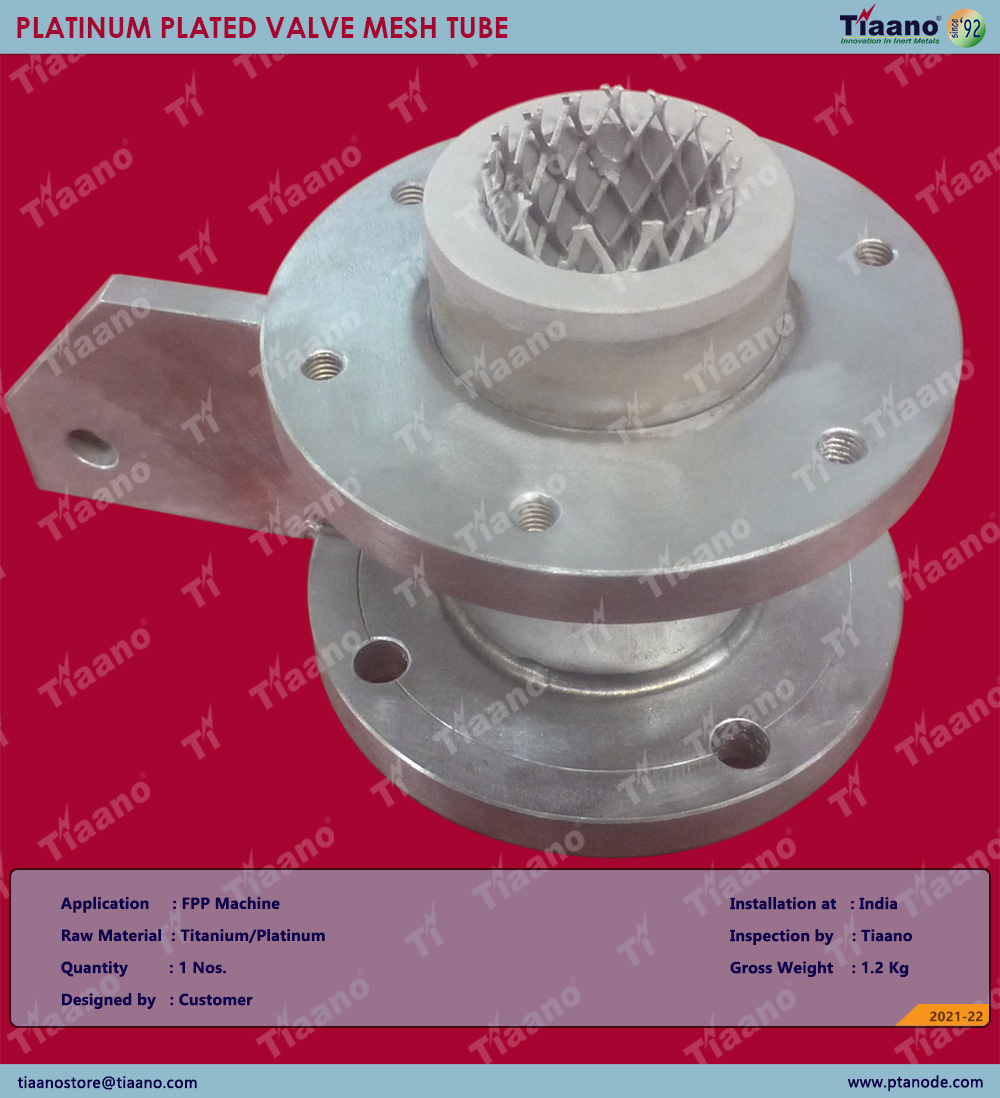ISO 9001:2015 certified, Manufacturer of anodes made from Titanium, Niobium and Tantalum. Available in various sizes. Capabilities include design, fabrication, electro polishing and Electro Plating or Electro Deposition. Suitable for Hard Chrome Plating, semiconductor, valve manufacturing Rotogravure plating and other applications.
Feature of the Platinum Plated Anode:-
Platinised titanium / niobium anodes are having the features of
• Low weight - good current resistance, Long life operation, maintenance free, Economical - due to low platinum requirements.
• High dimensional stability and low resistance, highly suitable as anodes of custom made shapes.
Visit our site www.ptanode.com to know more about platinized titanium, niobium, tantalum and molybdenum anodes.
You may refer more details from here:-
Facebook Page: https://www.facebook.com/platinizedAnode
Instagram Page: https://www.instagram.com/pt_anode/
Twitter Page: https://twitter.com/pt_anodes
Pinterest Page: https://in.pinterest.com/TiaanoPtAnode/pins/
You can also visit our page here ….
Cathodic Protection (ICCP) Anode
Electro Plating (Metal Finishing) Anode
Hard Chrome Plating Anode
Water Ionization Anode
Electro Winning Anode
Platinum Plated Valve Titanium Mesh Tube Anode details:-
Tiaano: Manufacturer and Supplier of Platinum Coated Valve Mesh Titanium Anode
Year of Established: 1992
Anode Application: Hard Chrome Plating (for Valve manufacturer)
Installation at: Aurangabad, India
Inspection by: Tiaano
